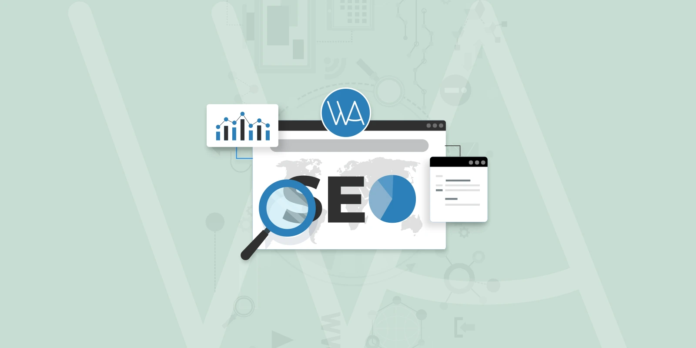Most entrepreneurs understand the incredible value obtained from having an effective website or blog. It can be used to promote your brand, reach potential customers, share valuable information, and sell products.
Unfortunately, business owners sometimes neglect the technical aspects associated with running a website. One of those aspects is choosing the right web hosting provider — the company responsible for storing the website’s data and making it available on the Internet.
It is important to choose a web hosting provider that has the right infrastructure, personnel, support, and technical knowledge to keep your website running smoothly. Not only should the server respond quickly to requests from web users, but it must also be secure and reliable. At the end of the day, who would want to be a victim of those who dedicates their lives to brutal hacking?
Extensive hosting performance research carried out by Design Bombs should lead you in the right direction.
If you choose a low-quality hosting provider, it can result in some serious damage to your business! To highlight this fact, here are seven reasons why choosing a high-quality hosting provider matters.
Don’t let it kill your search rankings
A poor-quality web hosting provider may have frequent server outages or servers with slow response times. This can affect your overall website’s ranking in search engines. Major engines like Google use the speed of your website as a factor to determine where your website ranks in search results. Hence, there should be no compromise made as to how fast your website handles incoming visitors.
Simply put — the slower or less reliable your website is, the lower it will rank in search engine results. Consequently, this can reduce the number of visitors to your website and hamper any content marketing initiatives that you have in place.
Your website may become a vulnerable target
Low-quality or “budget” hosting providers may not have the expertise or the necessary resources to protect their servers against hackers. They may not update their servers adequately or may not have the networking hardware required to stop any malicious cyber activity.
If hackers can penetrate the web hosting provider’s network, they can place malware on your website, steal your user’s data, or completely destroy your website. This can result in some severe outcomes for your business, including
- Users may sue you for the loss of confidential data stored by your website
- The outage caused by the hack could result in a loss of sales and customers
- Users may lose any respect or trust that they have in your website or business
- You could lose proprietary commercial knowledge
- Your overall brand reputation can be at risk
Obtaining support may be more difficult
If you choose a low-quality web host, obtaining a timely response can become a challenge. That means they will be slow when responding to any outages or performance issues that your website experiences. If the response from the support staff is slow, the negative impact of technical issues is prolonged — further damaging the effectiveness of your website.
If you require a software update to be performed on the server, you may also be waiting for days or even weeks. Therefore, this could delay changes that you wish to make to your website.
A potential loss of revenue
Customers are less likely to stay on a website or follow through on purchases if it performs poorly. Pages that load slowly, have missing files and missing pages can all force a user to abandon the site and move on.
Moreover, according to Gigaspaces, Amazon found that every 100ms of website delay costs them 1% in sales. Whereas according to Kissmetrics, a delay of 1 second can lead to a loss of up to 10% in conversions.
To put this data into numbers, let’s consider that your website is generating $5,000/day in sales. A delay of 1 second means that you could be losing $500/day, $15,000/month or $180,000/year.
You may be saving $20 a month by going with a cheaper hosting provider, but how much of a loss are you incurring through missed sales?
Business reputation might be at risk
Internet users tend to make judgments about the quality of business within 10 seconds of landing on a website. It should come as no surprise that if your server is struggling to deliver a website, users will miss the opportunity even to evaluate your site.
Furthermore, did you know that the longer your website takes to load, the higher the abandonment percentage is?

If the site loads slowly, looks poorly designed, or is difficult to use, it will reflect poorly on your entire business — offline and online.
The provider might not be able to scale with your business
If your website suddenly takes off and the traffic you are receiving dramatically increases, you will require more powerful hardware, more bandwidth, and help. If you use a low-quality, shared hosting plan, the provider may struggle to provide the required resources. Your website may become inundated with traffic and begin to experience outages under the weight of users.
Hence, it’s imperative to estimate your traffic needs, keep a good track record of your data usage and plan ahead to avoid user inconvenience and downtimes.
The server location matters
Some cheaper web hosting providers have their server facilities placed in locations where web hosting infrastructure is cheaper — like South America or China. Unfortunately, this can affect the page load speed for visitors in the United Kingdom or the United States.
There is also some evidence that search engines may take server location into consideration when ranking websites. For instance, a website that is hosted in the UK may not rank as well for the same queries in the US.
Although the vast majority of hosting providers would give you the option to select your primary location, it can be worthwhile carrying out some background research. Simply put – host your site where your visitors are.
What makes up a good hosting provider and what to watch out for?
Now that we’ve discussed the reasons why you must be careful when choosing a web host, it’s time to see what are the qualities of that “perfect” hosting provider.
Top-notch Performance: Look for at least 99.9% uptime. Even though 99% looks promising, it’s already 100 minutes of downtime per week.
Reasonable Pricing: Web Hosting market is incredibly competitive, so is the pricing. Generally, a quality shared hosting would not have an initial cost of more than $7-10/month. But, as we know, the devil is in the details. Don’t get shortsighted, and watch out for renewal costs. Usually, that’s where unexpected surprises come from.
Rocket Speed: When it comes to website speed, it’s worthwhile evaluating your hosting options and carrying out extensive background research. Look for those who can offer a page load speed of 500ms or under.
Pentagon Security: Although the vast majority of hosting providers will put emphasis on their “exceptional” security features, you should take it with a grain of salt. Look out for hosts that offer firewall protection, malware removal, and SSL integration.
24/7/365 Support: What can be more frustrating when your website is down, and you can’t get hold of anyone to help you? Choosing providers that offer 24/7 Live Chat or Telephone support could be a wise move.
Traffic Scalability: Depending on your ambitions, you should plan way ahead when choosing the right hosting plan. What you require now may not meet your needs in 6 months. When starting out, look out for hosts that can accommodate and manage an adequate amount of monthly traffic (at least 10,000 visits/month), while offering an easy way to upgrade your plan.
Free Perks: Who doesn’t love freebies? Some hosting providers may offer a free domain registration while others provide a free SSL certificate. Whichever provider you decide to go with, the vast majority will offer an incentive in one way or another.
Harvard Reputation: Every company has its skeletons in the closet. Make sure you’re not one of them. Conduct thorough research prior to making that deadly decision. It’s worth noting that not all big names have the right kind of reputation behind their backs.
Daily Backups: No matter who’s a fault it is, your website should be backed up on a daily basis, including your database and files.
Intuitive Control Panel: User-friendly control panel is an absolute necessity for a less tech-savvy individual. Ensure your provider is either using CPanel or Plesk as a panel where all the magic happens.
Tech Specs: This point purely depends on your needs & plans. If you’re about to create the next YouTube, you simply can’t expect the cheapest plan to fulfill your requirements. Think wisely and act strategically.
Physical Stuff (Hardware): Although our world is getting replaced by software, we should not forget about the old, traditional piece of metal with wires (that’s hardware). Get to know what your intended hosting provider uses, is it SSDs or wood-crafted HDDs?
Conclusion
Far too often, we get short-sighted with our decisions that often lead to unpleasant consequences. Taking the necessary time to research your choices would not do any harm. Instead, a cold-hearted approach and strategic planning would certainly benefit you and your business in the long run.
Evaluate your options carefully, plan your needs, and conduct extensive research before making a final decision.







Useful Article.
Thanks Share.